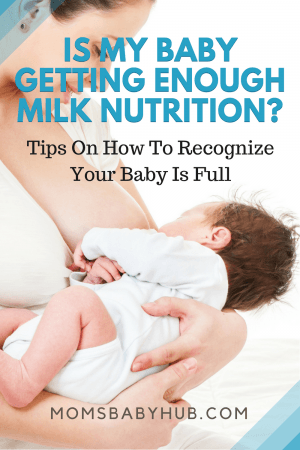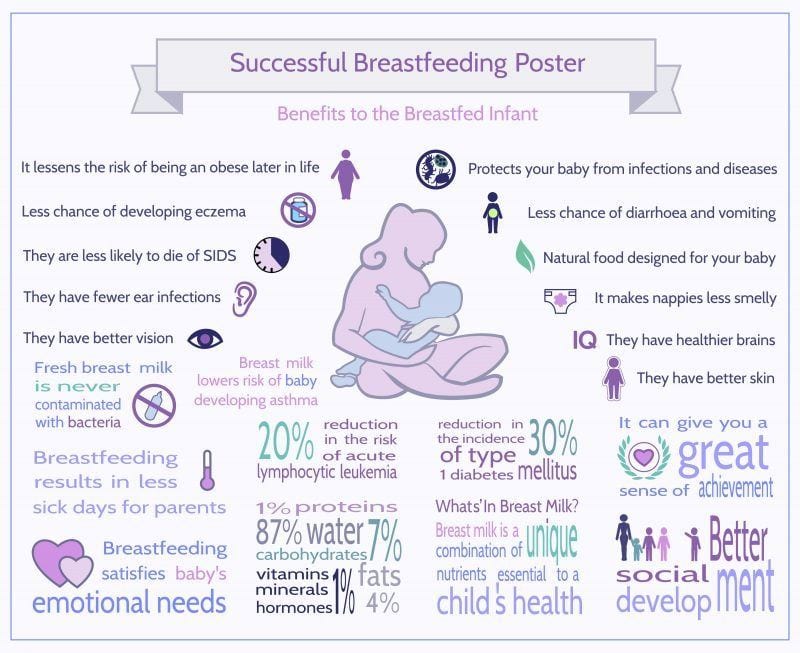
Breast Milk Feeding: Benefits and Common Concerns
 With a new baby, comes new responsibilities and experiences especially if it is your first time giving birth. One of the many wonderful things you will be experiencing is breastfeeding.
With a new baby, comes new responsibilities and experiences especially if it is your first time giving birth. One of the many wonderful things you will be experiencing is breastfeeding.
Breastfeeding is one of the most natural and beautiful things in the world. It’s a way for a mother to connect with her baby as well as nourish them. But for some women it can be a bit of a problem such as not being able to produce enough milk or know what foods to eat to get more milk.
Listed below are many of the benefits plus we address the most common concerns of breast milk feeding:
How do I know if my baby is getting enough milk/nutrition?
This is a very important concern as a mother and rightly so.
Truth be told, let your baby guide you in terms of how much to feed. Feed your baby as often as you can and if he/she pulls away then don’t force feed. Babies feed up to 16- 18 times a day so you have to be mentally prepared for this. Focus on the frequency and not on the amount. Sometimes they will just drink a little and be satiated and other times a little bit more. As your baby grows, the frequency will become less because you will be feeding it other things such as juices and baby food etc. Here are some signs that your baby is getting enough milk:
- You breastfeed 6-8 times a day.
- There is no pain in your breasts or nipple and breastfeeding is quite comfortable for you.
- Your breasts are soft and less full after the feed.
- Your baby swallows the milk easily and latches on to your breast during the feed.
- Your baby has different rhythms while feeding and pauses a bit before sucking again.
- Your baby removes his/her mouth spontaneously once done with feeding.
What foods help produce breast milk?
 When breast milk feeding, whatever you eat, its nutrients get absorbed into the milk that you lactate so it is always a good idea to frequently eat those healthy and nutrient rich foods that will be the building blocks of your child’s health.
When breast milk feeding, whatever you eat, its nutrients get absorbed into the milk that you lactate so it is always a good idea to frequently eat those healthy and nutrient rich foods that will be the building blocks of your child’s health.
Except for vitamin D, breast milk contains almost every other nutrient that is essential for a baby’s growth.It is important to mention that many mothers think about dieting soon after giving birth so that they shed off the pregnancy pounds and end up doing these diets with food restriction.
This is not a healthy approach because starving yourself will produce less milk. Just have a healthy and balanced diet so that you and the baby are not deprived of any nutrients. Here are some foods that you must stock up on so that your baby is getting ample of vitamins and minerals.
- Meat—Chicken, turkey, beef and mutton so that you get plenty of protein and iron. They are essential for the blood cells and their growth.
- Omega 3 fatty acids—Salmon, cod and sardines are packed with these as omega 3s are essential for cognitive development.
- Fruits—Eat as many fiber rich fruits as you can so that you get all the vitamins. Fruits are rich in antioxidants which are important in maintaining healthy skin, hair and nails.
- Vegetables—Give it up for veggies for providing you minerals that help organs function at their optimum level.
- Nuts and seeds—They are rich in healthy fats that give energy and both you and the baby need their benefits.
- Other foods—Eating healthy carbs such as brown rice, buckwheat, oats, potatoes, quinoa and dark chocolate are going to keep you full for longer and are not fattening either.
- Dairy—Your baby is not the only one who needs the dairy goodness. Have full fat milk, cream and yogurt to get your daily dose of calcium.
Benefits of Breast Milk Feeding?

Can you run out of milk while breastfeeding?
Yes, it is possible to run out of milk while breast milk feeding but this is nothing to be alarmed about. This may happen because your baby is having a growth spurt and has increased the feeding sessions.
The human body is a very adaptable so the more you nurse your baby, the more it will produce. Usually the only time you will run out of milk is when you are not eating enough of the right foods.
Breastfeeding is uncomfortable for me, what can I do to help?
A slight pain during breast milk feeding is completely normal as the nipple gets sucked by the baby. But the pain and discomfort goes away after the first minute as you get eased into it. But if the pain persists and you have a painful experience every time you breastfeed and soreness around the nipples then you may have mastitis.
It is an infection of the milk ducts. Get your self checked by the doctor if you have mastitis immediately. But the good news is that you should continue breastfeeding as it helps in clearing up the infection.
Other possible factors include sore breasts which is quite common. This is because the ducts have become clogged. You should take warmer showers and massage your breasts gently but firmly multiple times a day.
What can I do to produce more milk?
- Don’t stress about not being able to produce more milk as stress hormones also affect the milk. Just eat a balanced diet and nurse frequently.
- Avoid feeding through bottles or using pacifiers and other baby food for the first 6 months.
- Have milk thistle tea as it promotes breast milk production in women.
Breast milk feeding is a true bonding experience for mothers and babies. Don’t stress, enjoy the satisfaction of the experience knowing your baby will benefit in many ways.

